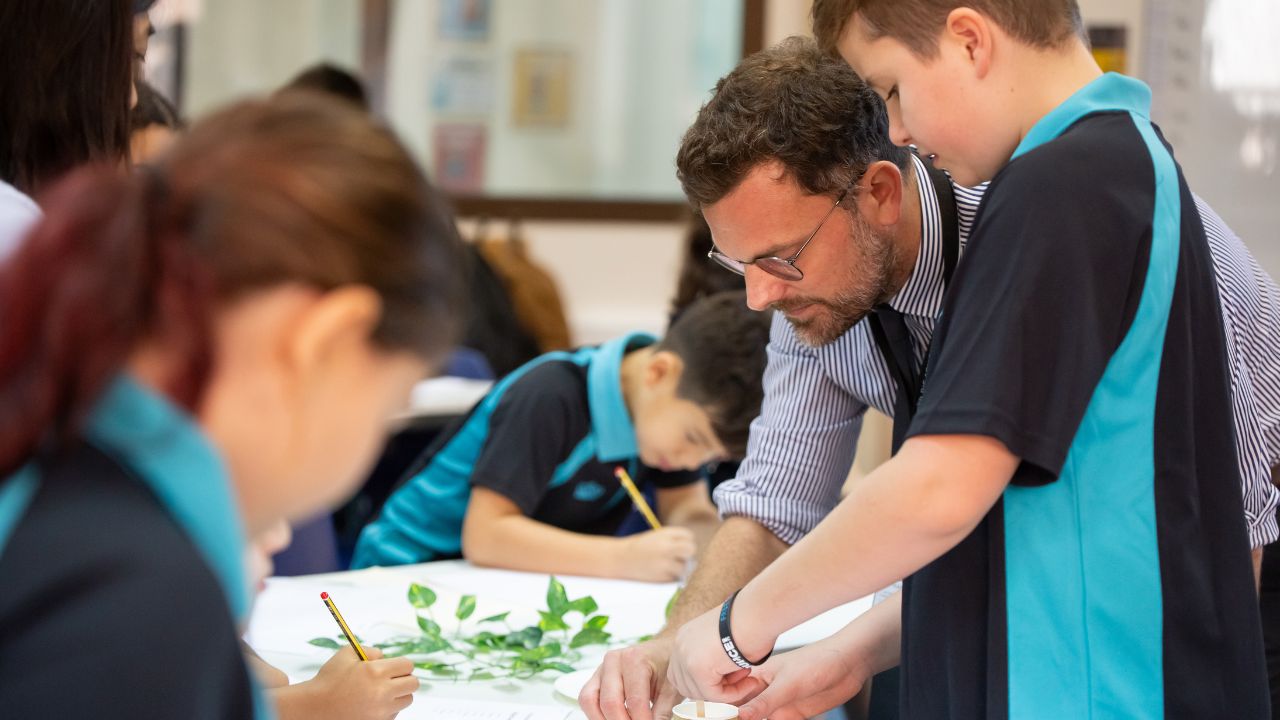
Across the UAE, top schools are building inclusive communities—celebrating diversity, embracing neurodiversity, and empowering every child
How do UAE schools create classrooms where every child feels valued, supported, and empowered?
From celebrating different learning styles to embracing neurodiversity and diversity of backgrounds, inclusive education is transforming how children learn, connect, and grow.
This Autism Awareness Month, we explore how top schools in Abu Dhabi and Dubai are building communities where acceptance is a daily reality—and every student feels empowered to shine.
Raha International School, Abu Dhabi
Shaping a new era of autism acceptance in Abu Dhabi
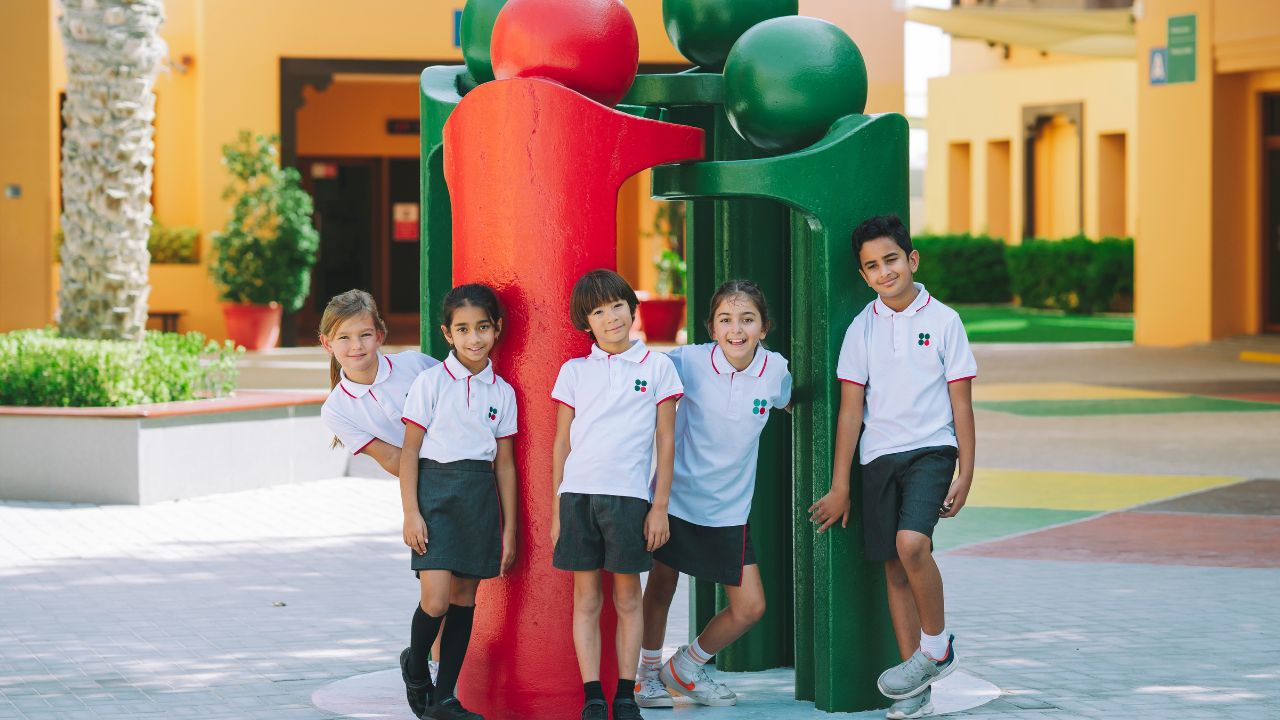
At Raha International School, inclusion isn’t an initiative—it’s an identity.
“When a young student first joined Raha International School through ADEK’s Autism Inclusion Project (AIP), it marked the beginning of a transformative journey,” says Benjamin Crosby, Director of Inclusion.
“Now in Grade 10, she continues to thrive in a school that has grown with her—adapting to her strengths, responding to her needs, and celebrating her voice.”
At Raha, students with autism are part of every stage of school life, from Early Years to the IB Diploma Programme.
Through partnerships with the Autism Inclusion Project (AIP) and ADEK’s In-School Specialist Services, students access embedded Speech and Language Therapy and Occupational Therapy support—without disruption or stigma.
Inclusion at Raha is underpinned by Universal Design for Learning (UDL) principles. Classrooms are built where choice, creativity and clarity are standard.
Visual timetables, calm zones, and multiple learning pathways help every child flourish. Most importantly, students are never asked to mask their identities.
“For students who communicate through echolalia, devices, or movement, we don’t ask them to mask—we adjust the space around them,” Benjamin explains.
Rooted in the UAE’s values of rahma (mercy), ta’awun (cooperation), and dignity for all, Raha fosters belonging through respect, communication, and trust.
“This is more than acceptance—it’s belonging,” Benjamin says. “Belonging means changing our system—not expecting them to change for it.”
The British International School Abu Dhabi
Championing inclusion through kindness, honesty, and respect
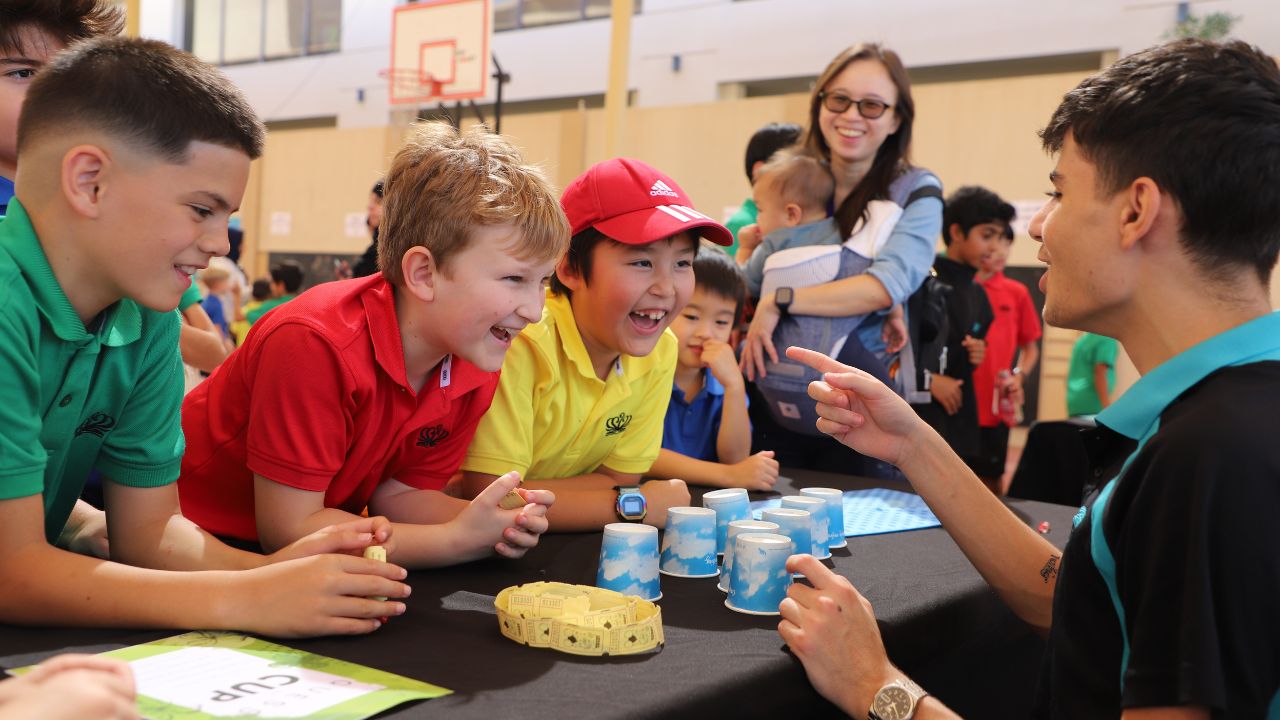
At The British International School Abu Dhabi (BIS Abu Dhabi), inclusion is embedded in the school’s ethos.
Built on the values of Kindness, Honesty, and Respect, BIS Abu Dhabi ensures that every student—whatever their needs—is welcomed into a warm, supportive, and empowering community.
Classrooms are designed with all learners in mind, using visual aids, hands-on activities, and creative expression to engage and empower students.
For those with Additional Educational Needs, personalised learning plans ensure that teaching meets students where they are, strengthening their confidence and independence.
At BIS Abu Dhabi, relationships between staff and students are based on empathy and trust.
“Students are not only encouraged to share their voice, they’re empowered to,” explains the SENCO team. This nurturing environment means every child is truly seen, heard, and celebrated.
At a time when embracing neurodiversity is more important than ever, BIS Abu Dhabi’s approach offers a powerful model of inclusive education in action.
You might also like: How Abu Dhabi’s top schools are championing art and creative learning
Al Shohub Private School, Abu Dhabi
Inclusion as a lived experience
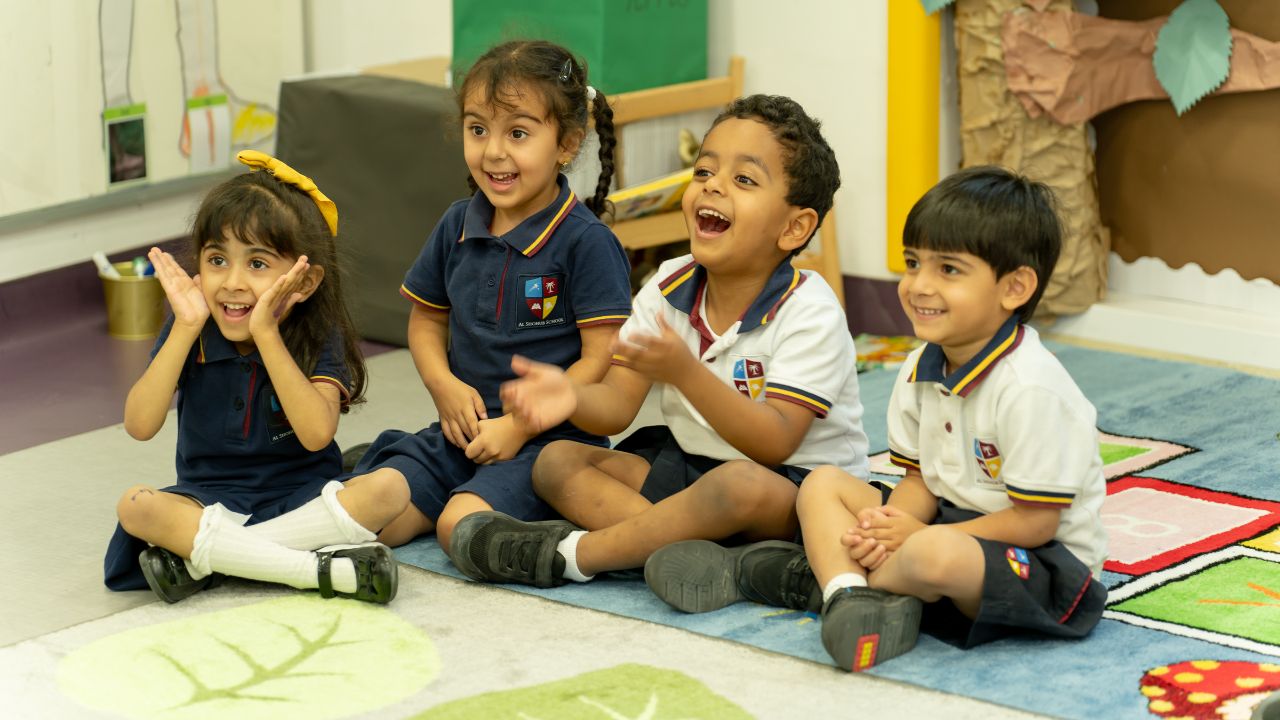
At Al Shohub Private School, inclusion is not just a policy—it’s a lived experience woven into daily school life.
“Every child is different—we spend time getting to know each individual and adapt our approach accordingly,” says Helen Morris, Principal.
Al Shohub places equal emphasis on academic achievement, wellbeing, and character development, ensuring that children thrive whatever their strengths.
The school’s extensive Inclusion Wing offers spaces for interventions, therapies, and alternative learning environments that all students can access, not just those with identified needs.
“We put the child’s emotional, psychological, and wellbeing needs first, ensuring they feel secure, resilient, and ready to succeed”, explains Helen.
The Inclusion Wing is fully integrated into school life, providing students with flexible spaces to refocus, seek enrichment, or engage in therapy sessions alongside their classroom learning.
“We invite therapists into school to coordinate sessions alongside classroom learning,” Helen adds. “That way, children aren’t missing out, and parents can enjoy true family time in the evenings.”
Through robust identification, support, and monitoring processes for SEN, POD, and G&T students, Al Shohub’s dedicated team ensures that every child’s journey is personalised, nurturing, and future-focused.
Jebel Ali School, Dubai
Empowering students to succeed by embracing every voice
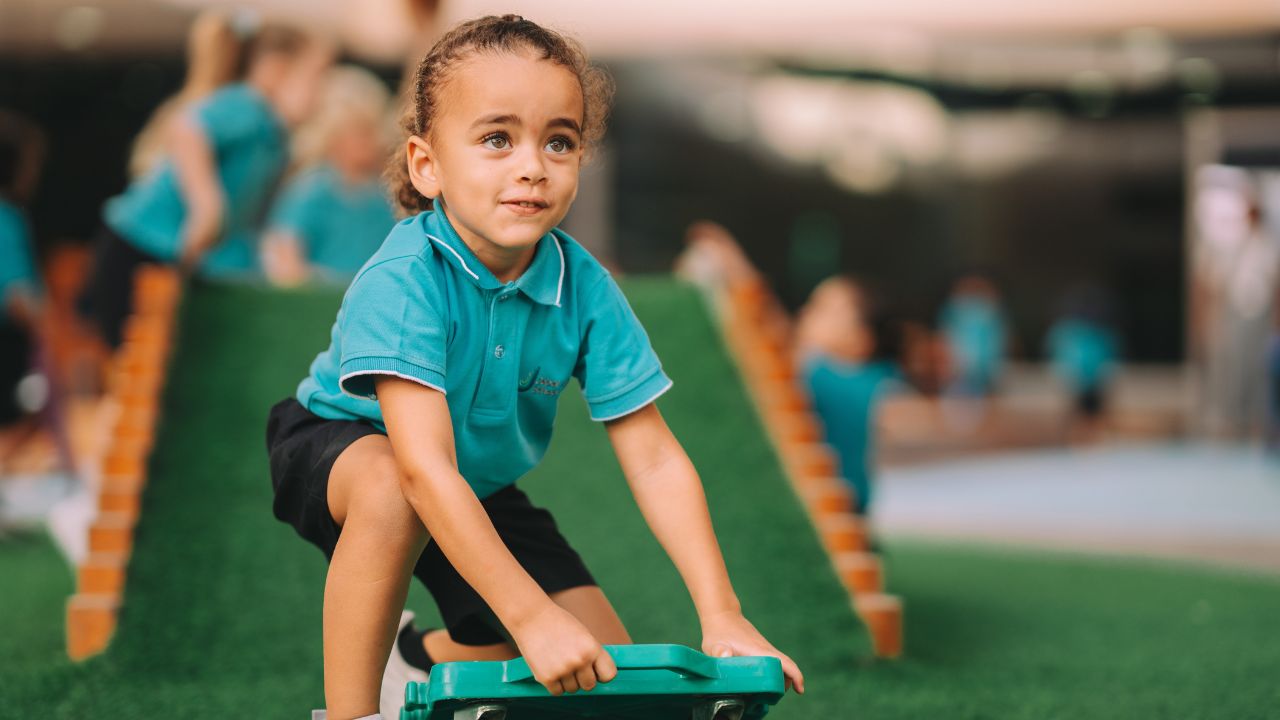
“Inclusion is embedded in every aspect of school life,” says Lyndsay Wing, Director of Inclusion at Jebel Ali School.
“Our classrooms are welcoming, respectful, and supportive environments where every child is encouraged to feel valued, understood, and empowered to succeed—regardless of their background, ability, or learning needs.”
At Jebel Ali, lessons are thoughtfully adapted to meet a wide range of learning styles, using visual aids, differentiated tasks, assistive technology, and calm spaces for self-regulation.
Additional adult support is provided when needed, and tasks are modified to ensure that every student is appropriately challenged and set up for success.
Social inclusion is a core priority too. Group projects, open discussions, and shared classroom values nurture a culture of kindness, collaboration, and respect.
“Our goal is for every learner to feel safe, respected, and truly seen,” says Lyndsay. “When students feel this level of care and inclusion, they develop confidence, resilience, and the ability to reach their full potential.”
Beyond the classroom, Jebel Ali is committed to broader community engagement.
The school’s annual Neurodiversity Conference, organised in partnership with Connect Psychology, brings families, educators, and specialists together to share expertise and celebrate neurodiversity.
How to promote autism acceptance in everyday life
As Benjamin Crosby of Raha International School shares, building inclusive communities begin with everyday actions. Here are three ways families and schools can promote autism acceptance:
- Understand sensory needs:
Some students may require headphones, movement breaks, or dim lighting to stay regulated. Respect the tools they need to feel safe and thrive. - Respect all communication:
Whether a child uses speech, devices, scripting, or movement, communication is happening. Listen with curiosity and an open mind. - Use identity-first language when preferred:
Many autistic self-advocates prefer ‘autistic person’ rather than ‘person with autism.’ Always follow the child’s and family’s lead.
Follow Yalla for more education news
